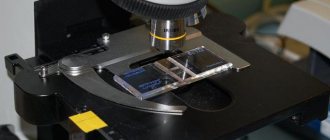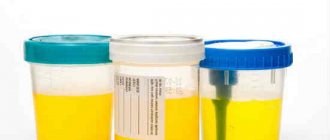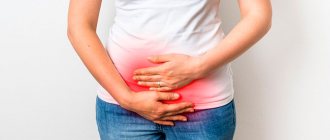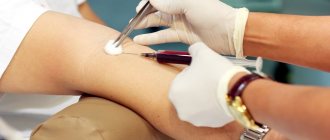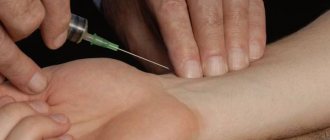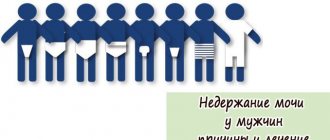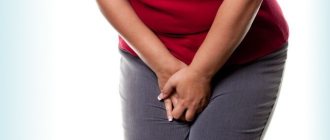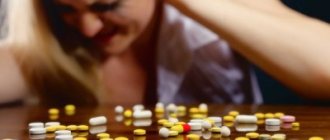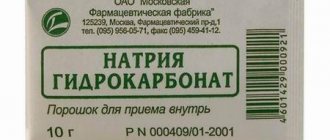General urine analysis - how to collect and submit biomaterial correctly so that the test results are reliable? All rules for collecting material are in this article.
Are there certain rules for collecting urine in adults? Yes, such rules exist. If you collect a sample taking into account all the recommendations of doctors, the results of the analysis will be reliable and will help to correctly and timely determine the nature of the disease.
A general urine test is one of the most common diagnostic methods. This method allows you to correctly identify many pathologies of the body at an early stage; at a time when many symptoms have not yet begun to appear. As a rule, a general analysis is prescribed for almost any disease, and it is also recommended to collect urine to assess the patient’s condition during treatment.
During a general analysis of urine, its physical and chemical properties are determined. The study allows you to correctly identify diseases of the genitourinary system, liver and many other diseases at an early stage.
Preparing for the test
The results of the analysis will be reliable if you prepare for it correctly and collect urine properly. There are some factors that can affect the physical and chemical characteristics of urine.
We are talking about food and drinks, medications, dietary supplements, as well as intense physical activity. One day before properly collecting urine for general analysis, you need to exclude from your diet those foods that can change its color characteristics. These include bright fruits and vegetables (citrus fruits, carrots, beets), smoked fish or meat, sweets, and marinades. Since color is one of the most important characteristics in the study of physical properties, urine should not be collected after consumption of these products.
Alcohol and coffee should also be avoided. It is advisable to avoid vitamins and dietary supplements, as they can affect the test result. A day before collecting biomaterial, it is necessary to stop heavy exercise, and also refuse to visit the bathhouse or sauna.
Menstruation is a fairly serious reason to postpone the analysis for several days, since the result will be distorted. Also, urine should not be collected after cystoscopy. Usually urine is collected for general analysis a week after the procedure.
Collection of biomaterial for analysis from an adult
In order to conduct a full study, the amount of urine of an adult must be at least 130 ml.
It is preferable to purchase a special container from a pharmacy store for donating urine for analysis. It is a sterile plastic cup with a screw-on lid. If you don't have a container, a small sterilized glass jar will do.
Do not touch the inner surface of the container and lid with your fingers so as not to disrupt their sterility. Place a marker on the container in advance indicating the data of the patient being studied and the attending physician.
The result largely depends on the quality of preparation of the dishes for collecting urine analysis.
Important: you can obtain the most complete information about the state of the body only if urine is collected in the morning on an empty stomach. The period of time between the evening toilet and urine collection should not be less than 5 hours.
In some cases, if it was not possible to collect material for analysis immediately after waking up, it is allowed to use urine collected no earlier than 2.5 hours after the first morning urination.
- Urine collection can be done only after mandatory hygiene procedures.
- Take a collection container with you to the toilet after removing the lid.
- In order for the collected material to be sterile, it is necessary to release the first stream into the toilet, and only after that collect the urine for analysis.
If a woman needs to be tested during her menstrual period, she should use a hygienic tampon immediately after morning water procedures. A tampon should be used in all cases if vaginal discharge occurs.
General urine test - how to collect
Before submitting a sample, you need to figure out how to properly collect a general urine test. Incorrectly collected material will make it difficult to obtain reliable results. To prevent foreign matter from getting into the sample, you must follow all the rules for collecting urine. Before collecting biomaterial, you need to take a shower. Otherwise, the analysis will show an increased number of leukocytes and red blood cells.
The container for collecting material must be absolutely clean and free of detergent residues. Today, urine is increasingly collected in special disposable plastic containers, which are sold in any pharmacy.
Urine collection in infants
Collecting urine from young children is accompanied by certain difficulties. The child, of course, urinates at odd hours, so the mother needs to have a container on hand. Children often urinate after waking up or feeding, this will be a hint for parents. You can also go with your baby to the bathroom and open the faucet with running water. The sound of running water may cause your baby to urinate.
In addition, you can purchase a sterile urine collection bag for children at the pharmacy. This is a small plastic bag with a hole . The urine collector is attached between the baby's legs using adhesive tape. After the child completes urination, the mother needs to pour the urine from the bag into a container. It goes without saying that you should definitely wash your child before collecting urine.
Grigorova Valeria, medical observer
17, total, today
( 47 votes, average: 4.32 out of 5)
MRI of the mammary glands in women
Sputum culture for tuberculosis
Related Posts
Urine collection rules
Home / For patients / Preparation for research / Rules for collecting urine
General rules for preparing for urine collection.
Before collecting urine, a preliminary toilet of the external genitalia is performed: in women, the vagina and lips are washed with a sterile cotton swab and warm soapy water, moving forward and downward; then rinse thoroughly with warm water and dry with a clean cloth; in men - the external opening of the urethra is cleaned with warm water and soap, and dried with a clean napkin. Bedridden patients are first washed with a weak solution of potassium permanganate, then wiped dry. To obtain reliable results, you must refrain from physical activity, drinking alcohol, and go to bed the night before at your usual time. You should not collect urine during menstruation. After cystoscopy, a urine test can be prescribed no earlier than 5-7 days later.
General urine analysis.
You must collect the entire morning portion of urine in a dry, clean container, mix and pour into a container in an amount of at least 10 ml.
Urine according to Nechiporenko.
You should collect the middle portion (medium stream) of your morning urine in a container.
Zimnitsky test.
Urine is collected throughout the day, every 3 hours (8 servings), including at night. Prepare 8 jars with a capacity of 200-500 ml with labels indicating the portion number and the time interval for which urine must be collected in each jar. Excessive fluid intake is not allowed; avoid diuretics on the day of the study. At 6 am the patient empties the bladder, this portion is poured out. Then collect the urine in a prepared container: portion No. 1 - from 6.00 to 9.00, portion No. 2 - from 9.00 to 12.00, No. 3 - from 12.00 to 15.00, No. 4 - from 15.00 to 18. -00, No. 5 – from 18-00 to 21-00, No. 6 – from 21-00 to 24-00, No. 7 – from 24-00 to 3-00, No. 8 – from 3-00 to 6-00 . If the patient cannot hold urine for 3 hours, then he urinates in this jar several times, but only for 3 hours. If the patient has no urge to urinate for 3 hours, then the jar remains empty at the appointed time. If the urine does not fit in the jar, then it is collected in an additional jar, and on the label they write “Additional urine for portion No...”.
Three glass sample.
Collect morning urine in 3 containers: 1 - first portion, 2 - middle portion, 3 - last portion.
Rules for collecting daily urine (biochemical tests of urine, Rehberg test).
The drinking regime is normal (1.5 - 2 liters per day). At 7 a.m., empty your bladder into the toilet and record the time you empty your bladder. Collect the following portions in the same container, which must be stored in a cool place (+4+8) during the entire collection time. Collect the last portion of urine at 7 am the next day. Mix the urine collected during the day in a container and measure the total volume. Record the total amount of urine in milliliters and the patient's weight. Take no more than 100 ml from the total amount of daily urine and pour it into a container. For the Rehberg test, it is also necessary to take a blood test, which is taken at the end of the 24-hour urine collection period (the patient must come in the morning on an empty stomach).
Collection using bd vacutainer vacuum systems (urine for culture).
Morning urine is subject to examination. Remove the lid from the urine container by turning it counterclockwise. Place the lid with the inside facing up on a clean surface. Flush the small first portion of morning urine down the toilet, fill 2/3 of the container with urine in a continuous stream. Flush the rest of the urine down the toilet. Close the lid tightly by turning it clockwise. Deliver the container for research at a temperature of 2-8 degrees.
Stool analysis
General collection procedure:
- 1. Prepare a sterile container.
- 2. Empty your bladder first to prevent urine from getting into your stool.
- 3. Defecation must be performed in a suitable container or vessel that has been disinfected and poured boiling water over it.
- 4. Place the required amount of stool (usually about 10 ml or 2-3 tsp) in a container, tightly close the lid and deliver it to the laboratory along with the directions.
Basic requirements when analyzing for dysbacteriosis:
- stool must be collected before taking medications;
- You can submit for examination only fresh feces collected no later than three hours before the examination;
- Sterility conditions must be maintained as much as possible.
- In case of stool coprogram, a few days before the analysis, it is recommended to give up very fatty and fried foods and give preference to dairy products, cereal and vegetable dishes, eggs, and fruits.
- Feces for testing for worm eggs can be collected the night before submitting to the laboratory, and until this point the sample should be stored in the refrigerator.
- For any type of analysis, you cannot submit stool obtained from laxatives or after an enema. Stool collected in the next two days after the X-ray examination is also not suitable for analysis. In addition, a week before the test, you must stop taking medications that can affect all digestive processes (laxatives, enzymes, vitamin preparations).
GENERAL RECOMMENDATIONS AND PREPARATION RULES FOR COLLECTING AND PASSING URINE TESTS
Mandatory list of documents for research
General urine analysis (form form 210/u).
Biochemistry of urine in a single portion. Microalbumin in urine. Microbiological examination of urine (culture).
Recommendations for collection and analysis
The patient collects the entire morning portion of urine (the first few milliliters of urine are poured into the toilet), the previous urination should be no later than 2 am. The patient collects urine while urinating freely into a dry, clean container with a wide neck, mixes and collects it in a special medical container with a screw cap in a volume of no more than 50-100 ml. Urine collection is carried out after thorough toileting of the external genitalia without the use of antiseptics.
Women are not recommended to take a urine test during menstruation.
You cannot use urine from a vessel or potty for research! When ordering a urine culture, use only a sterile medical container!
Patient preparation
The night before, 10-12 hours before the test, it is not recommended to drink alcohol, spicy and salty foods, as well as foods that change the color of urine (beets, carrots), the drinking regime is normal. Taking medications must be agreed with your doctor.
If possible, avoid taking diuretics.
When prescribing a urine culture, urine collection must be carried out before the start of drug treatment and no earlier than 10-14 days after the course of treatment.
Conditions for storing biomaterial at home and delivery to the laboratory
It is recommended to immediately transport the collected urine to the laboratory. It is necessary to store urine in a medical container; it is allowed at T = +2; +24 °C and only for a short time, in the refrigerator at t+2 °C; +4 °C - no more than 1.5 hours. The patient must deliver the urine container to the laboratory on the day of collection, but no later than 1 hour after receiving the sample.

